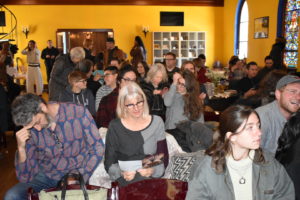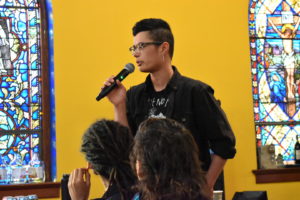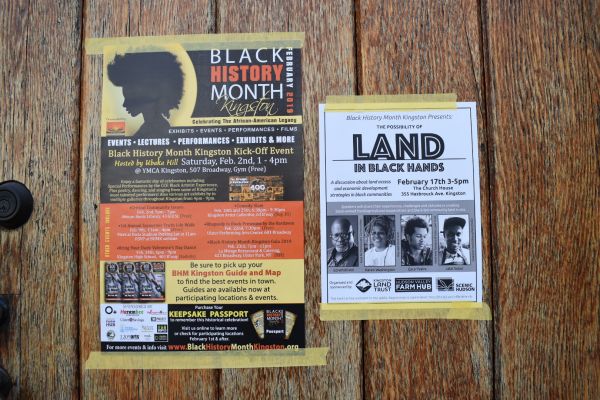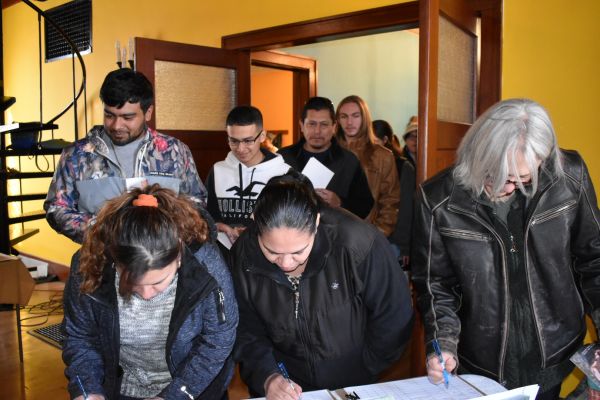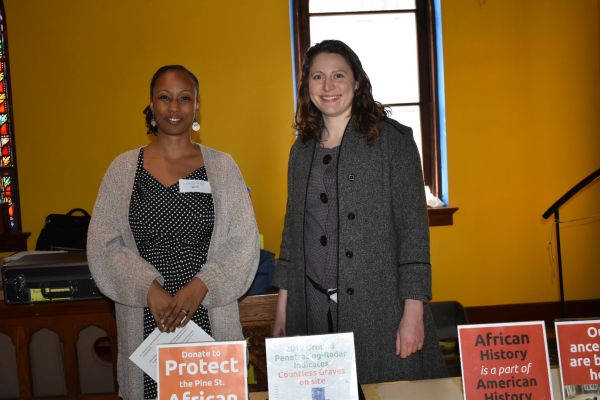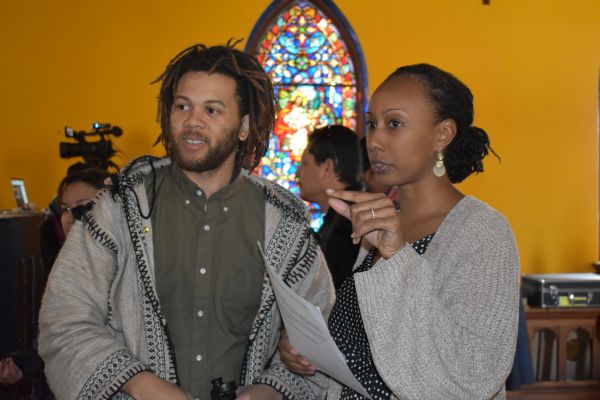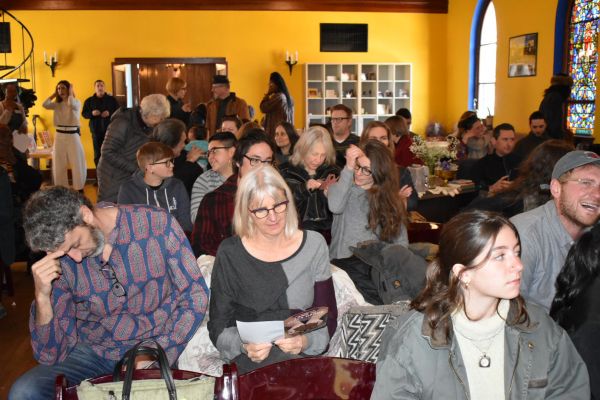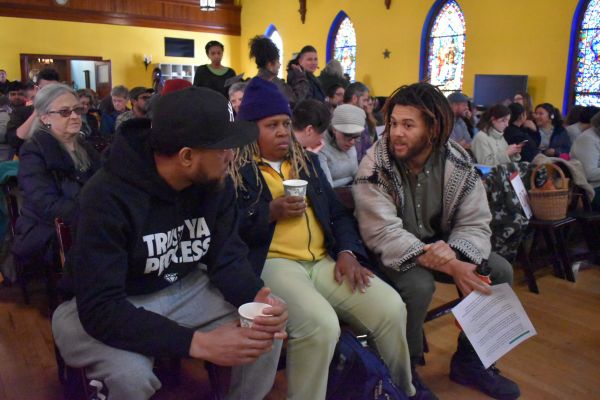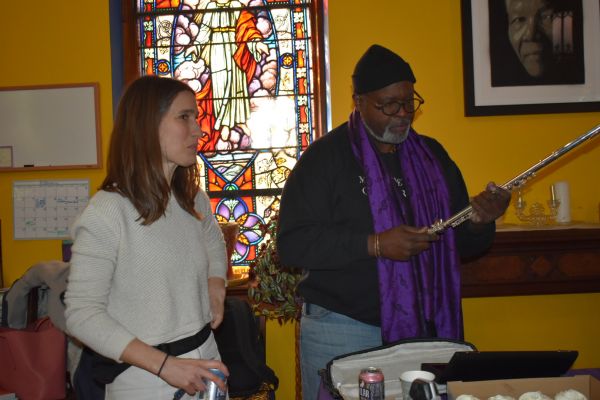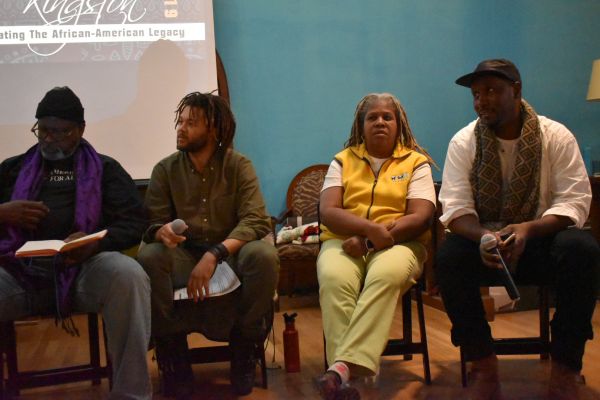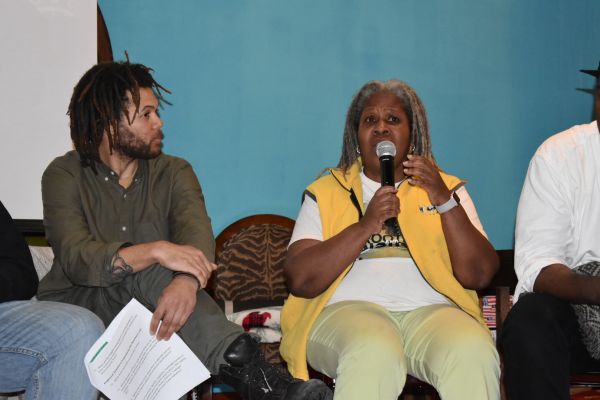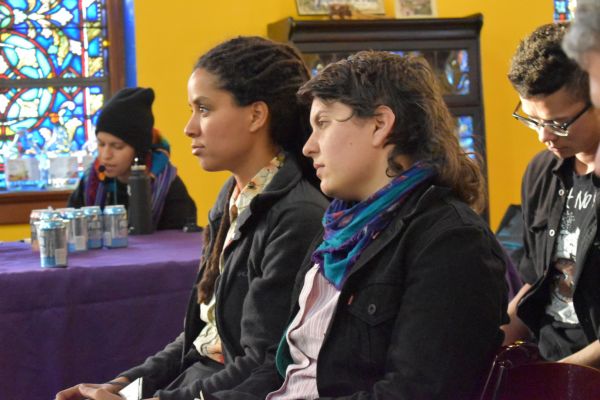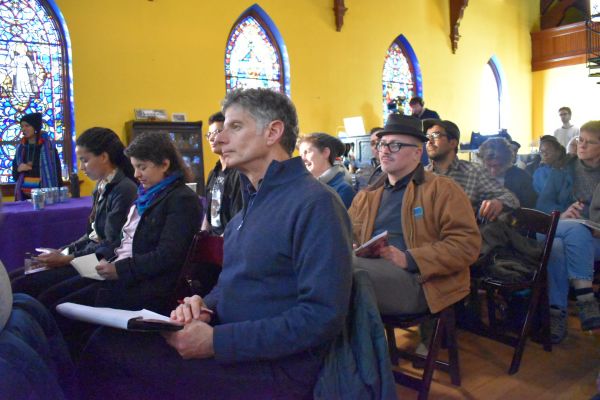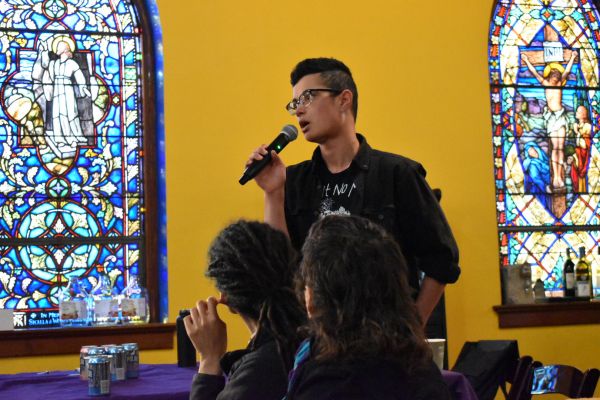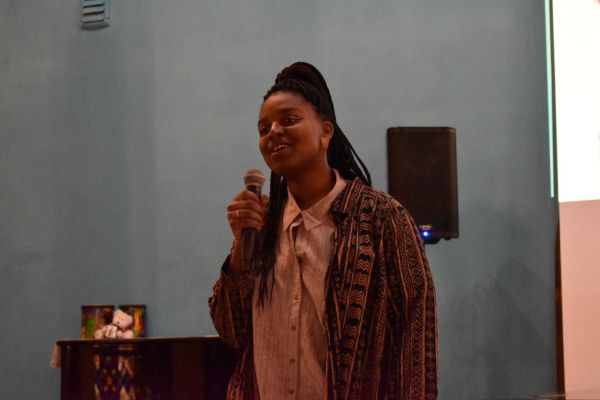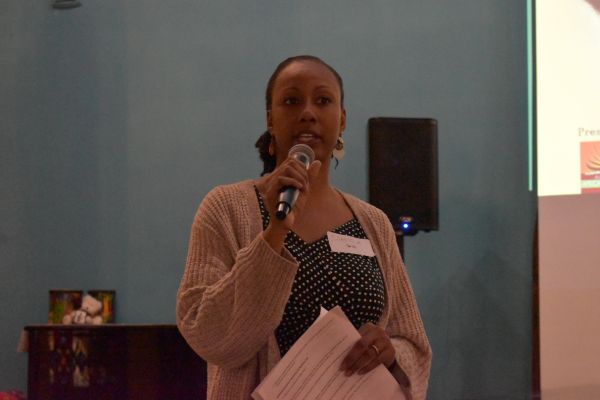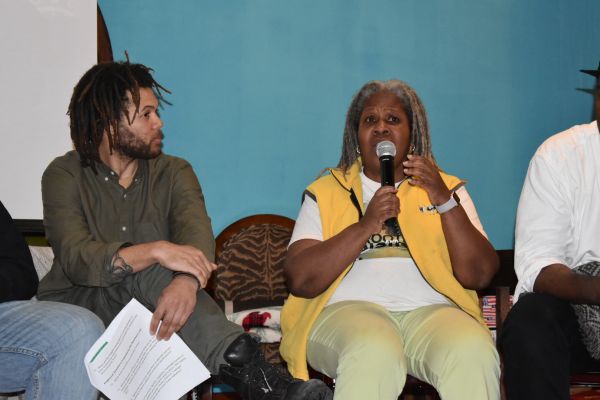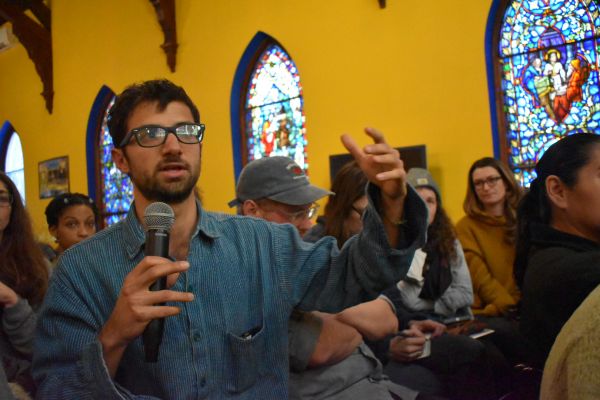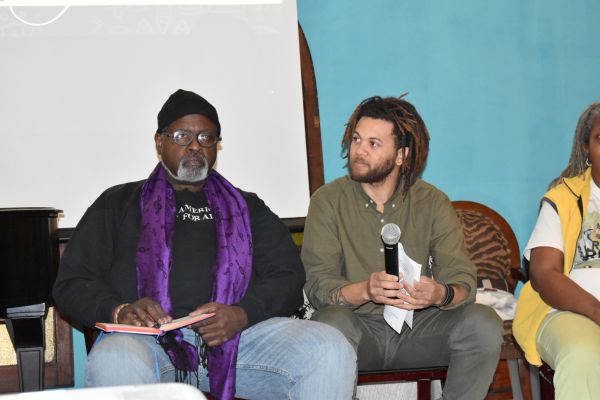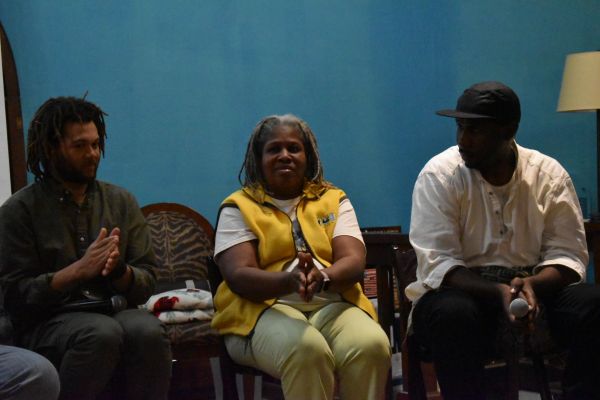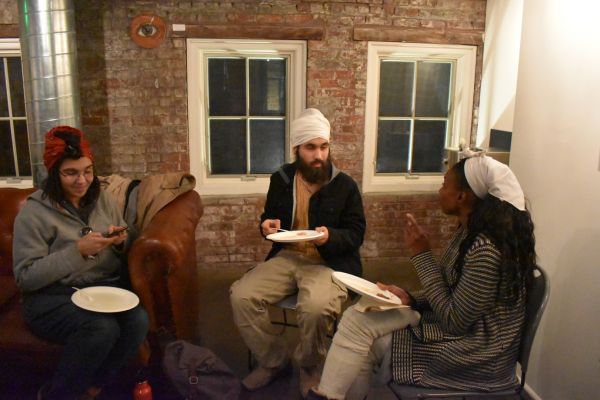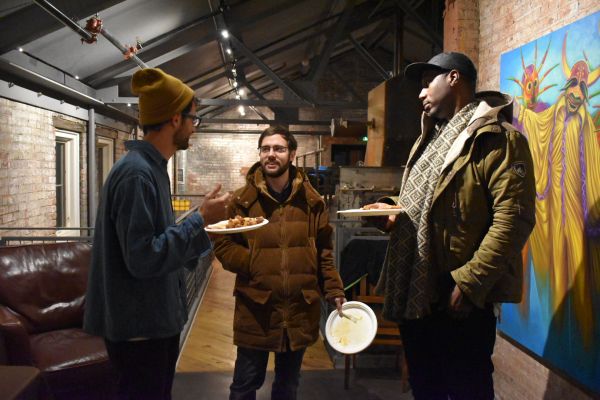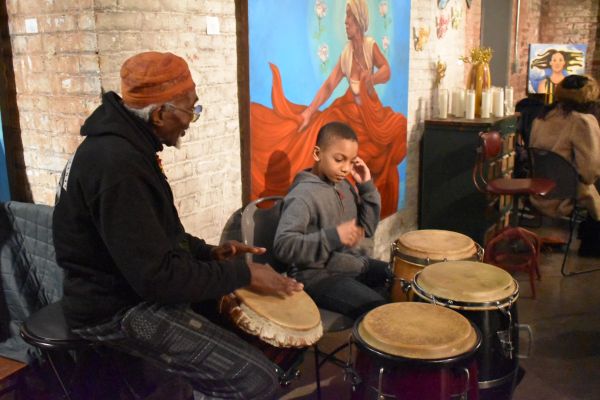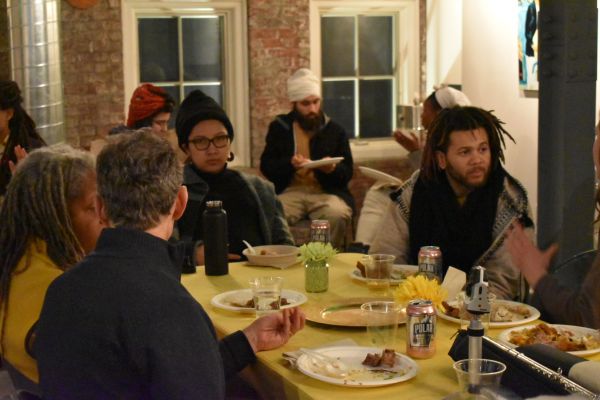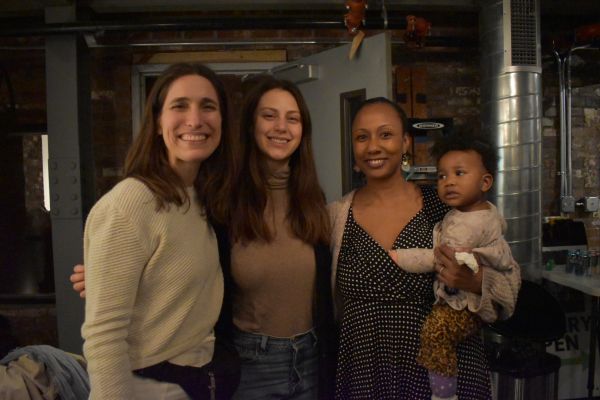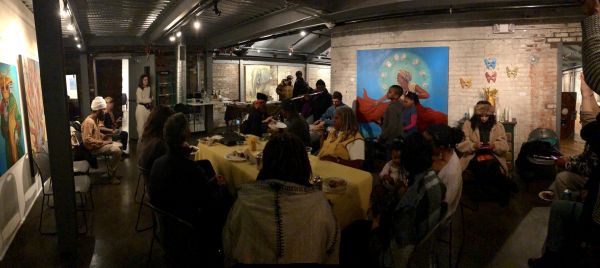The Hudson Valley Farm Hub participated in Black History Month Kingston, a commemoration celebrating the African-American legacy, this year with “Land in Black Hands” an engaging public discussion held February 17th at The Church House in downtown Kingston. The discussion, guided by Çaca Yvaire, representing Northeast Farmers of Colors Land Trust, drew a standing room only crowd and featured farmers and community activists Ed Whitfield, Karen Washington and Jalal Sabur.
The event, co-sponsored by the Farm Hub, The Kingston Land Trust, Scenic Hudson and live-streamed by Radio Kingston, included discussion about the “commons” as a resource for the community, reparations, and continued educational development for new and experienced black farmers.
At the event’s opening, Farm Hub ProFarmer, Nailah Marie Ellis spoke about why black land matters, citing a quote from Malcolm X, “Land is the basis for freedom, justice, and equality.” She also noted the importance of intergenerational knowledge by “talking with people who have already done this work to build a more informed future.”
Ed Whitfield, co-managing director of the Fund for Democratic Communities in Greensboro, NC, has a background in political activism and economic development. On land ownership Whitfield says, “We need to realize this earth we live on once belonged to us all by virtue — all of us made it, and it was something we shared together, in terms of land, other forms of infrastructure and systems – And those are products of human labor on the land. Part of our task of re-establishing the commons is so people can co-exist together.”
Karen Washington, a farmer, community activist, and co-owner of Rise and Root Farm, a cooperatively run farm in the black dirt region of Orange County, NY, says acknowledging and preserving history is equally important as addressing the question of how to increase land ownership. Washington said it is critical to “capture those stories” by digital tools, and when she has the chance she likes to remind young people about the profound wisdom that is carried by family members who have been in agriculture, and that they should learn more about their histories “because that is your legacy.”
Jalal Sabur is a farmer, organizer, prison abolitionist, and also co-founder of the Freedom Food Alliance and WILDSEED Community Farm & Healing Village in Millerton, NY. Sabur’s focus has been on supporting families of the incarcerated with transportation to prisons and increasing their access to farm fresh foods. Sabur said creating positive change is more than “just about capital, it’s about having a place where we can use those hard skills and be self-determined. It’s not just a check that will go outside of the community.”
The “Land in Black Hands” event featured a number of local black-owned businesses; the cupcakes served during the panel were made by Sharon’s Cakes, and local Jamaican restaurant, Top Taste catered a post-event dinner at The Lace Mill for organizers and panelists. “Land in Black Hands” was one of many events forming Black History Month Kingston.
The month-long celebration included 35 events this year, with highlights including a community dinner attended by over 250 people.
“I would say just to be able to open up that conversation of land in black hands is so important, because land is one of the most important things you can own in this country. It is a critical conversation that needs to be had all year around,” says Frank Waters, a lead organizer of Black History Month Kingston.
— Amy Wu
Featured image above: Left, moderator Çaca Yvaire listens as panelist Karen Washington of Rise and Root Farm shares her views on farming and land ownership.

